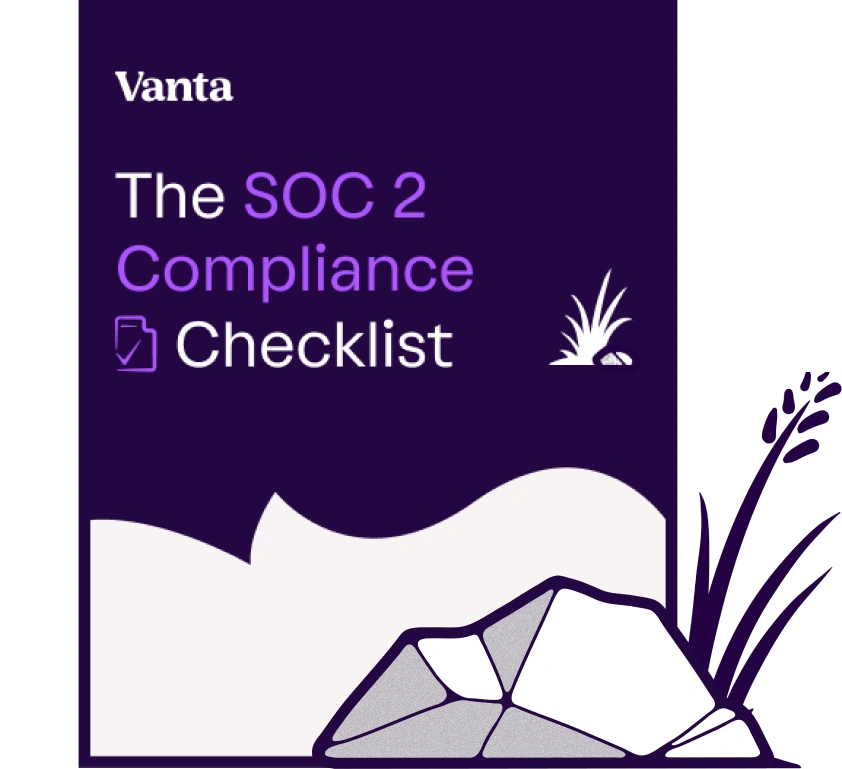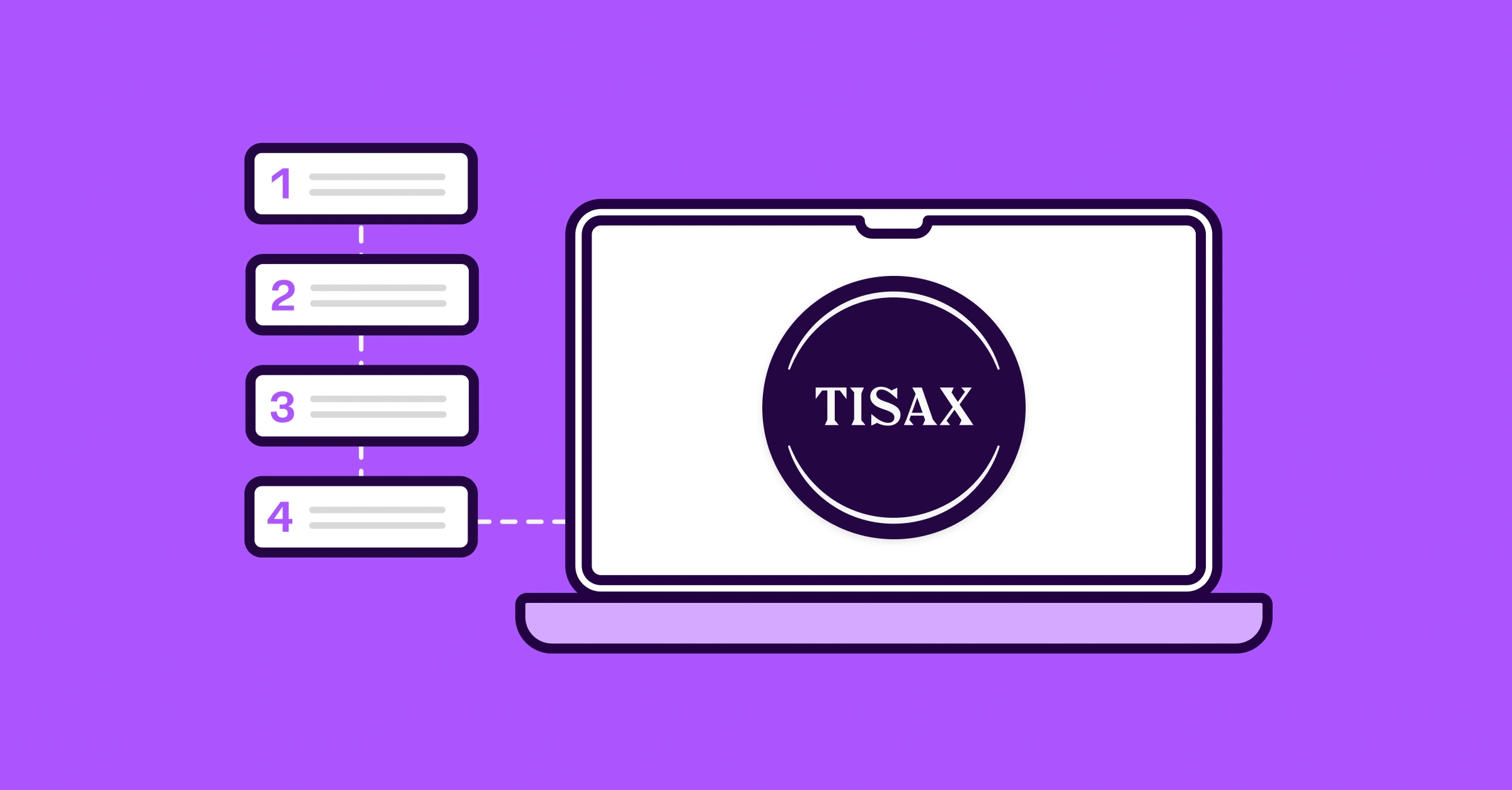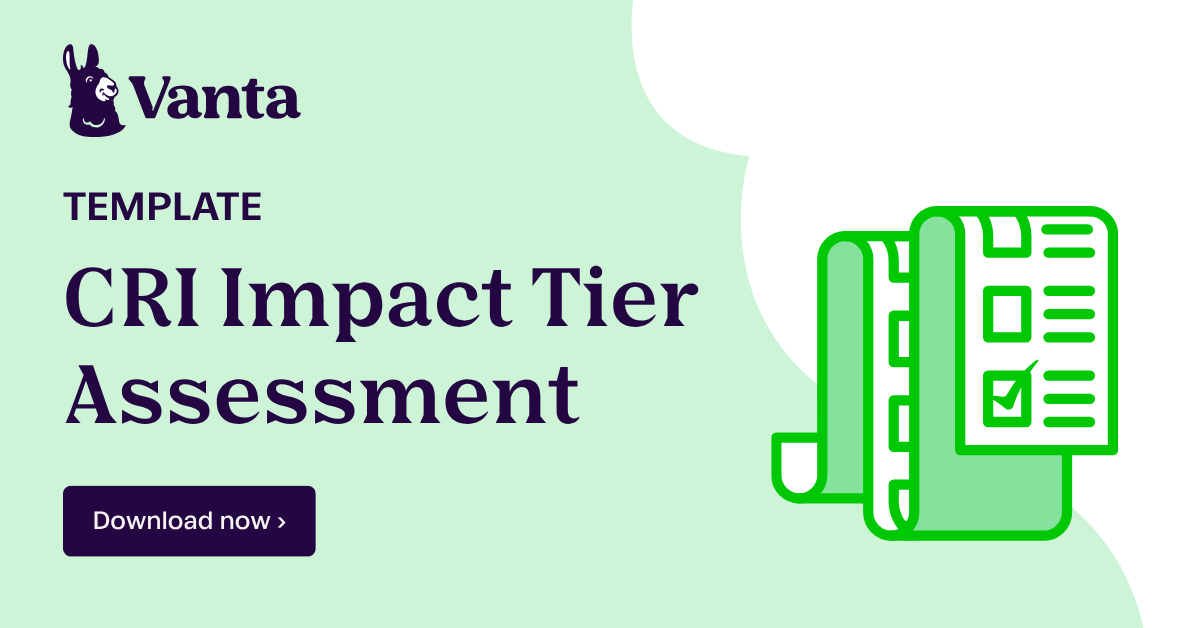Share this article

What is a security operations center (SOC) analyst?
Accelerating security solutions for small businesses Tagore offers strategic services to small businesses. | A partnership that can scale Tagore prioritized finding a managed compliance partner with an established product, dedicated support team, and rapid release rate. | Standing out from competitors Tagore's partnership with Vanta enhances its strategic focus and deepens client value, creating differentiation in a competitive market. |
A security operations center (SOC) analyst is a cybersecurity professional who protects an organization’s technology infrastructure from risks and threats. Whether your company is a startup with under 10 employees or a large enterprise, cybersecurity plays a critical role. Every security program consists of people, processes, and technology. Without the right people in place, your company is exposed to all kinds of risks, both internal and external.
So who should companies hire to defend their organization and make important security decisions? A SOC analyst is a common infosec profession that can greatly improve security and compliance programs.
What is a SOC analyst?
Although the acronym is similar, a SOC analyst has no direct affiliation with Service Organization Control 2—a compliance framework commonly known as SOC 2. With that said, SOC analysts do protect and uphold an organization’s compliance protocols.
SOC analysts are typically among the first professionals to respond to a security incident. They monitor an organization’s network, emails, servers, and database for any vulnerabilities, suspicious activity, or potential threats. SOC analysts also assess, build, and improve security systems to ensure the organization can operate without worrying about malicious activity.
Ideally, a SOC analyst is one member of a dedicated security team who is collectively trained to identify possible threats, respond to incidents, and prevent any issues from turning into bigger risks. The larger a company gets, the more necessary a SOC team becomes.
What skills do SOC analysts need?
SOC analysts typically have a strong background in technology and can understand complex security data. Analysts will often need hands-on experience with IT tools and technologies such as Networking, IDS/IPS, Identity and Access Management systems, and SIEM technologies. SOC analysts should also have strong analytical skills which will help them collect, analyze, and investigate information from various sources.
Analysts should also be broadly familiar with compliance frameworks such as SOC 2 and ISO 27001. Because of the close relationship between security and compliance, SOC analysts should have some basic knowledge in areas that affect compliance.
In addition to technical skills, SOC analysts should also be proficient in communication. Analysts are constantly coordinating with team members, whether it’s other security professionals, engineers, or executives. Being able to gather information, extract insights, and share it in a meaningful way is a large part of the role.
What are the benefits of hiring a SOC analyst?
Developing a robust security and compliance program at your organization is critical not only for infrastructural safety, but for overall growth as well. Not every company can afford to hire dedicated security professionals, but those that can have certain advantages. Here are some of the key benefits of hiring an in-house dedicated SOC analyst:
- Reduced possibility of security and compliance incidents
- Improved data and network security
- Lower cost, probability, and severity of security incidents
- Enhanced ability contribute to certain compliance standards or frameworks
- Better long-term security as the organization scales and grows
Organizations that hire security professionals will be protected against the ever-evolving list of threats that can cause harm to a business and its data. SOC analysts will support CISO managers or directors when it comes to setting up modern tools, techniques, and response approaches to your organization’s security program.
What are SOC analyst levels?
As a SOC analyst progresses in their career path, they will travel through three primary phases, or levels, of training and skill development. The specific responsibilities and skills in each level can vary based on team size, company needs, and more, but have similar themes.
Level 1 SOC analysts
Level 1 analysts monitor and survey security systems to spot any unusual or suspicious activity. Many complex issues that a level 1 SOC analyst may encounter will get flagged and escalated to a more senior analyst. They handle day-to-day tasks such as responding to phishing emails, endpoint security alerts, and triaging other alerts or notifications. They also coordinate with other teams to perform regular system maintenance and upkeep.
Level 2 SOC analysts
Level 2 analysts usually evaluate any risks or threats that have been escalated by a supporting analyst. Depending on the level of urgency and danger, a level 2 analyst may handle the present incident or quickly escalate it to a level 3 analyst if it poses a severe risk to the business. In any event, a level 2 analyst will also collect data, assess potential risk damages, and investigate more complex issues than the level 1 analysts.
Level 3 SOC analysts
Level 3 analysts are experienced with neutralizing the most complex and serious security challenges that threaten a business and are often designated as senior members of the team. These analysts sometimes conduct vulnerability assessments to defend against hackers and malicious actors. They can also be responsible for incident response activities and maintaining the health and quality of alerts originating from IDS/IPS and SEIM systems. Level 3 analysts are typically shift leaders, trainers, and last lines of defense.
How to become a certified SOC analyst
The most effective ways to break into a career as a SOC analyst are to find a mentor and demonstrate a sincere willingness to learn. On-the-job experience and certifications can help level up an analyst's skillset. With certified training, a SOC analyst has the possibility of going further in their career and discovering new opportunities across different industries and teams.
Certification programs are designed to test and validate an analyst’s understanding of the SOC analyst role. There are many certification options for SOC analysts, but a couple of noteworthy options are Cisco’s CyberOps Associate certification, Certified Blue Team Level 1, and CompTIA CySA+.





FEATURED VANTA RESOURCE
The ultimate guide to scaling your compliance program
Learn how to scale, manage, and optimize alongside your business goals.
















.png)


.png)
.png)
.png)





.svg)
.svg)


